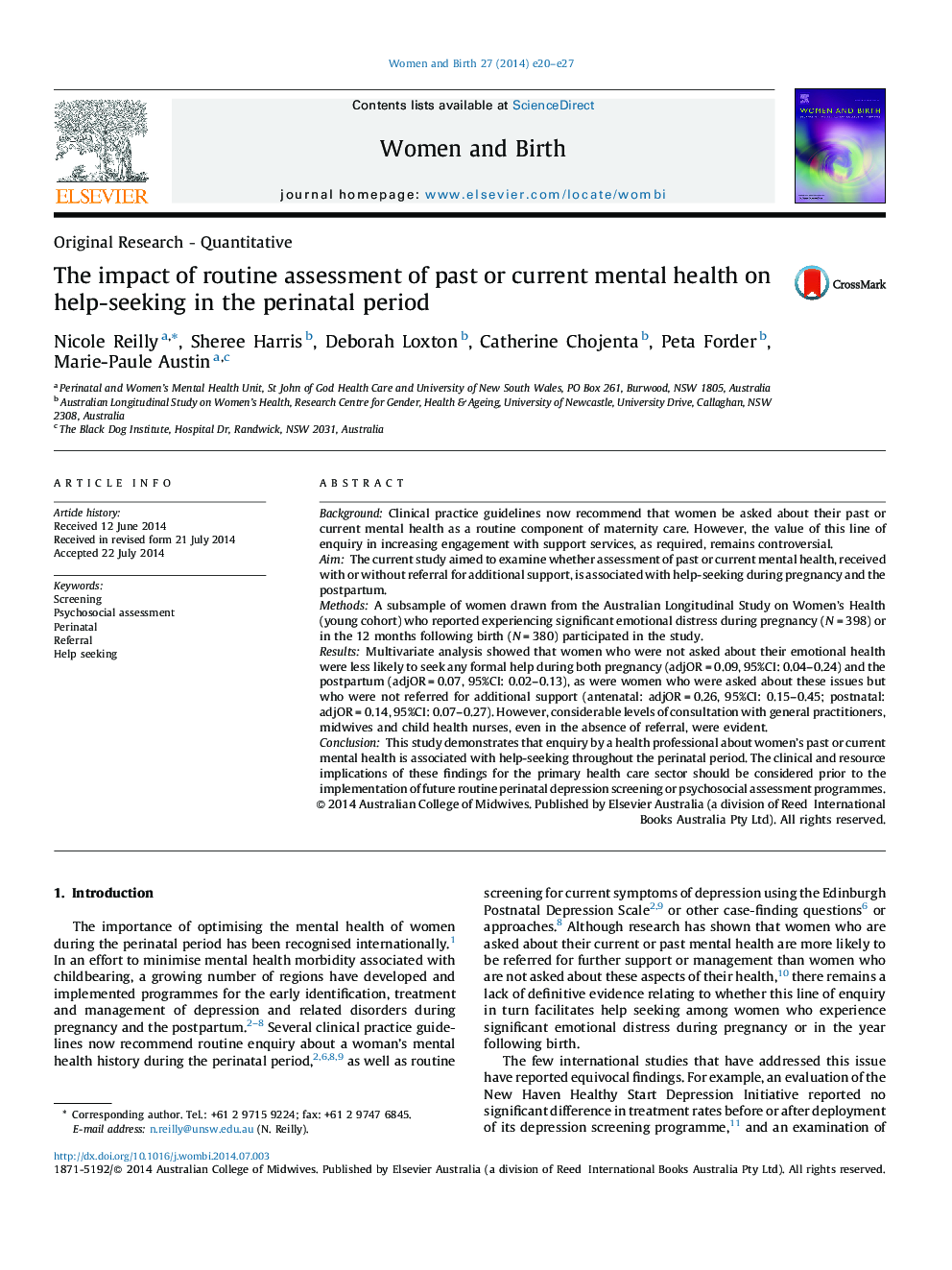| Article ID | Journal | Published Year | Pages | File Type |
|---|---|---|---|---|
| 2636007 | Women and Birth | 2014 | 8 Pages |
BackgroundClinical practice guidelines now recommend that women be asked about their past or current mental health as a routine component of maternity care. However, the value of this line of enquiry in increasing engagement with support services, as required, remains controversial.AimThe current study aimed to examine whether assessment of past or current mental health, received with or without referral for additional support, is associated with help-seeking during pregnancy and the postpartum.MethodsA subsample of women drawn from the Australian Longitudinal Study on Women's Health (young cohort) who reported experiencing significant emotional distress during pregnancy (N = 398) or in the 12 months following birth (N = 380) participated in the study.ResultsMultivariate analysis showed that women who were not asked about their emotional health were less likely to seek any formal help during both pregnancy (adjOR = 0.09, 95%CI: 0.04–0.24) and the postpartum (adjOR = 0.07, 95%CI: 0.02–0.13), as were women who were asked about these issues but who were not referred for additional support (antenatal: adjOR = 0.26, 95%CI: 0.15–0.45; postnatal: adjOR = 0.14, 95%CI: 0.07–0.27). However, considerable levels of consultation with general practitioners, midwives and child health nurses, even in the absence of referral, were evident.ConclusionThis study demonstrates that enquiry by a health professional about women's past or current mental health is associated with help-seeking throughout the perinatal period. The clinical and resource implications of these findings for the primary health care sector should be considered prior to the implementation of future routine perinatal depression screening or psychosocial assessment programmes.
